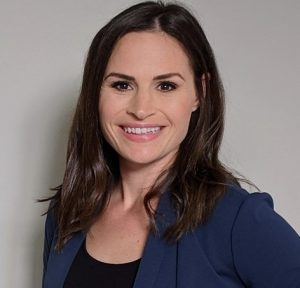A Master’s degree can accelerate your career, opening new doors and supercharging your earnings power. Or it can end up an expensive waste of time, a line-item on your resume that never impacts your job prospects. The key is knowing the difference ahead of time, understanding when you should get a Master’s degree and when you should pursue other options for professional development.
Government statistics underline the value of additional education. The U.S. Labor Department reports that the median weekly earnings for a worker with an Associate degree sits at $887. The figure balloons to $1,248 with a Bachelor’s degree. And it jumps again to $1,497 with a Master’s degree.
So, just in raw numbers, a Master’s degree pays off. The stats quoted above suggest a nearly 20% bump in base compensation as a result of earning the additional sheepskin.
However, it’s important to note that this looks at cases in aggregate. The government stats track the median weekly earnings, taking into account workers from a wide variety of professions. What might be true in general might not prove true for your particular case.
As such, consider your specific circumstances. With that in mind, here are a few questions to ask yourself as you think about whether or not you should get a Master’s degree:
What Specific Degree Do You Want to Pursue?
The stats mentioned above relate to Master’s degrees in general. But you won’t be receiving a generic “Master’s degree.” Instead, you’ll pursue a very specific collection of courses and skills.
It’s about contemplating a long-range vision for your career. Think about the ideal job you’d like to have in the future. Look five, 10, 20 years down the road. From there, reverse engineer the education you need to achieve that goal.
Research the degrees that open up the most doors and offer the best return. From there, you can determine if you want to go after another degree. You can also decide what course of study represents your best bet for future success.
Are You Sure About Your Career Plans?
A Master’s degree represents a big commitment. The exact amount of time will depend on the subject matter, but you’re looking at a year’s worth of course work, at least. And that assumes you can pursue the degree on a close to a full-time basis. If you need to take a more measured approach, it might take years before you have a degree in hand.
You don’t want your plans to change in the meantime. The last thing you want is to spend time and money on a diploma you don’t end up using. As such, plot out your ideal career and see how a Master’s degree fits into the plan. Be sure about where you’re going before you launch a major effort.
Are You Excited about More School?
A degree might make perfect sense from both the financial and developmental points of view. But you also need to think about it in terms of your day-to-day life. You’ll have to sit through classes and excel at the coursework. Are you up for it?
It may seem like a silly question, but it’s crucial. If you’ve just graduated, you might be burned out from school. Or maybe your current life circumstances (family, your 9-to-5 job) won’t let you invest the appropriate time and effort into the project.
In those cases, give yourself some breathing room. You don’t have to launch an attempt to obtain your Master’s degree now. If you’re not ready, mark it down as a long-term goal and reassess down the road.
How Will You Manage Getting Your Degree?
There are dozens of practical questions that you’ll need to answer before you set out on your quest for a Master’s degree. How will you handle child care when you’re in class? How will it impact your regular job? Could you pursue other professional development instead? How will you afford the classes?
Consider each of these items. None of them might create a deal-breaking scenario on their own. But, collectively, they might point to a different path.
Also, remember: you don’t necessarily have to commit to a Master’s program at the start. Many schools let you take introductory classes without becoming part of the long-term degree process.
Take a class and see how it feels. It might become the first step on a grand adventure. Or it might end there, a one-time experiment. Either way, you’ll be better off for the experience.
Maximizing your long-term earnings should mark an important goal in your professional development. Continued education can make that possible. So can landing the right positions. A top staffing agency, like Recruiting In Motion, can help you gain the experience you need to optimize your career potential.






































































































